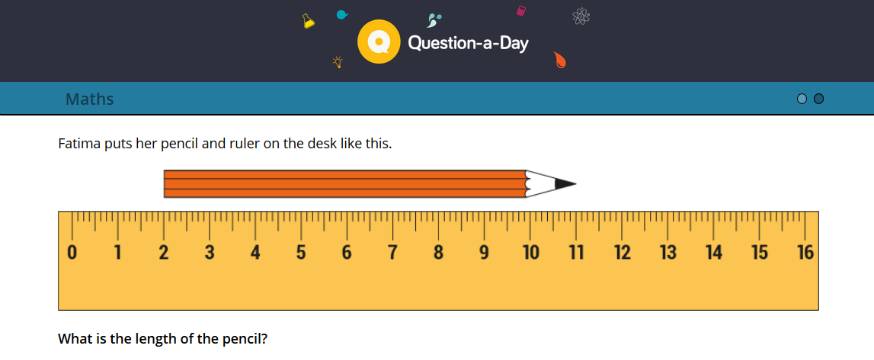
Question-a-day keeps learning underway
Research 28 May 2019 4 minute readAn ACER teaching and learning program is helping to prepare students for the next large-scale international assessment of mathematics and science.
The Australian Council for Educational Research’s Question-a-Day program is designed to unpack the content, skills and processes necessary to address the complexity of the high-order questions found in large-scale international assessments like the Trends in International Mathematics and Science Study (TIMSS) into individual tasks, which can then be combined into a sequenced pathway to approach and answer the totality of the question.
As the name suggests, the program sees students answer one mathematics and one science question every school day over the course of each week, with the content and relative difficulty increasing each day. Students can access Question-a-Day through any internet-connected device.
At the end of each week a report is delivered to classroom teachers, together with support materials to help teachers address the weaknesses observed in student responses or extend the strengths of more able students.
As ACER Senior Research Fellow and Question-a-Day Project Director, Frances Eveleigh describes it, ‘Question-a-Day provides students with online experience in interacting with the style of questions used in large-scale international assessments. Importantly, it also generates explicit student and class-level data to provide opportunities for school-level professional development and targeted resources to address student needs.’
‘The focus of this strategy is not ‘to teach the test’ but rather provide opportunities for students to engage with items and to measure the cohort’s proficiency and achievement in applying their learning experiences in different contexts and situations as assessed by international assessments,’ Ms Eveleigh said.
Developing Question-a-Day
Question-a-Day was developed for an education system that was keen to improve its students’ achievement in mathematics and science as evidenced in the results of large-scale international tests.
ACER’s first step was to conduct a detailed analysis of their students’ responses of the 2015 TIMSS assessment. The analysis showed significant weaknesses in a range of topics and skills, disparity between the TIMSS frameworks and the school curriculum, and a trend that suggested that students had surface knowledge of some topics but not the depth of knowledge demanded by international assessments.
In particular:
- Students were less familiar with questions that required synthesis of information.
- Multi-step problems and problems where connection of ideas was needed were challenging.
- Students required greater experience in application of concepts to real-life situations.
- Written response questions were challenging, with a relatively high non-response rate.
- Students required practice in explaining concepts or reasons, and describing events and scientific method.
ACER conducted a baseline study of Grade 6 students, who will be the target cohort of the next cycle of TIMSS in 2019, to gain insight into their current preparedness and learning gaps. The study identified deficiencies related to curriculum, item types, learning outcomes, ‘testwiseness’ and question attack strategies.
Following a small pilot study, the Question-a-Day program was officially launched in October 2017. Since then, 16 million responses from 50 000 students have been received and analysed, and 120 sets of teacher support materials have been generated.
To provide additional data on student progress to stakeholders, an online assessment was delivered in the classroom at the end of each trimester. The program achieved an acclaim and a critical mass of support from students and teachers, with 99 per cent of public schools and 94 per cent of private schools participating in the March 2019 assessments.
Find out more:
For further information about Question-a-Day contact qad@acer.org
